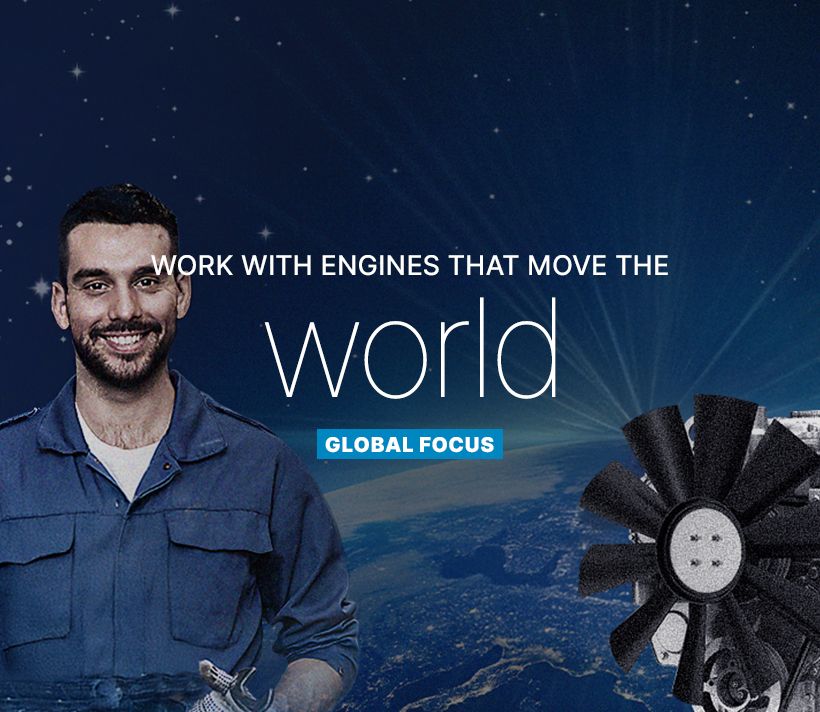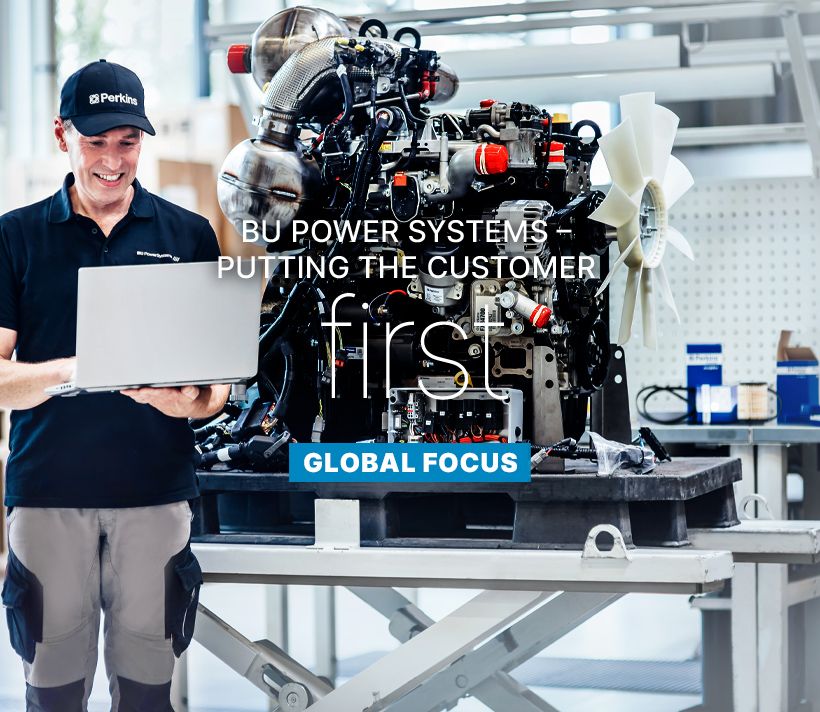There is nothing sophisticated about the coolant in your engine – right? After all it’s just tap water and a bit of antifreeze mixed together – isn’t it?
To the engineers who designed the cooling system in your Perkins diesel engine the answer is very sophisticated. In fact, coolant is probably the most underrated of all the fluids your engine depends on and to them it’s quite literally liquid engineering.
Consider what a properly formulated coolant has to do beyond simply protecting your engine from heat while it’s running, and freezing when it isn’t. It’s a carrier for pH stabilisers, anti-foaming agents, and protection agents for rubber and plastic components. It also includes additives that inhibit corrosion of the copper, brass, steel, cast iron, aluminium, and solder within the heat transfer system. In an unprotected cooling system rust can block the narrow spaces in a radiator leading to overheating and potential damage to water pumps, radiators, cylinder heads and gaskets.
Cavitation and cylinder pitting are other coolant-related sources of potential engine damage. Without the proper additives to prevent cavitation the tiny bubbles created can lead to pitting of the sleeves and premature failure. This is particularly important in wet-cylinder diesel engines where the sleeve that contains the piston comes into direct contact with the coolant.
A wet-cylinder is more efficient at transferring heat to the coolant, but it also transfers much more vibration and movement from the pistons to the sleeve and through the sleeve to the coolant which can cause cavitation. This is less of a problem with parent bore engines where the cylinder is part of the block or dry-sleeve engines where the liner is inserted into the block but does not contact the coolant, but cavitation and corrosion still can occur in any type of engine and need to be protected against.
As you probably have guessed by now, selecting and maintaining the proper coolant for your engine can have a significant impact on the Total Cost of Ownership (TCO). That’s why home-brew mixtures are seldom a good option. Without a laboratory analysis to identify impurities, measure the mineral content of the water and control the exact amount and type of additives in the antifreeze, the chances are very good that some aspect of engine protection will be missing.
Fortunately, Perkins offers coolants specifically formulated for their products. Perkins offers a standard heavy-duty formulated coolant, and a Long Life or Extended Life Coolant (LLC/ELC). While both provide optimum engine protection, the LLC/ELC product reduces maintenance requirements over the life of the coolant.
The difference can be significant.
The corrosion inhibitors in the heavy-duty coolant are used up over time which means the coolant has to be tested periodically and the additives have to be replenished as necessary. This is normally required at every oil change or every six months.
The test usually involves a trip to a local service centre or use of a special test strip by the owner. Either is easy to overlook and often difficult to do when the machine is in the field. In addition, using the wrong test strip, or one that has expired, could produce inaccurate results and result in improper dosing.
With a long-life coolant like Perkins® ELC, the main requirement is that the system is properly filled and the coolant is changed every three-years or 6,000 working hours. Perkins ELC is sold as a pre-diluted mixture using mineral-free distilled water so it can be added straight from the container as necessary. When it needs to be changed the system can be flushed with clean water since no additional cleaning agents are required.
Of course, with either type of coolant the level needs to be checked often and topped-up when necessary.
The difference between standard heavy-duty and Perkins ELC is that the latter uses advanced organic corrosion inhibitors including mono and dibasic organic acid salts that provide maximum protection for the metal alloys found in most heat transfer systems. These are instead of the nitrates, silicates, phosphates, borates and amines used in the heavy-duty formulation. Removing those phosphates and silicates helps prevent scale formation that can reduce heat transfer and encourage corrosion.
Perkins ELC also contains nitrites and molybdates to help protect iron components and reduce steel corrosion and pitting effects. The specific additives that are used deplete very slowly allowing nitrite levels to be maintained for longer than conventional coolants. Finally, because it uses distilled water, Perkins ELC practically eliminates hard water deposits and extends water pump seal life.
Either type of coolant will protect your engine. The choice is between a standard heavy-duty one that requires testing and periodic additive maintenance and a formulation like Perkins ELC that doesn’t.
Perkins ELC also halves the number of coolant changes needed, thereby reducing disposal volume and the related costs by up to 50 percent. That too has an impact on TCO in an era of increasingly stringent environmental regulations that can make responsible disposal costly.
Regardless of which type of coolant you select, it’s important to follow an engine manufacturer’s recommendations and use a product that meets accepted standards. Perkins ELC meets the ASTM D6210 standard for heavy duty, low silicate antifreeze/coolants, and ASTM D3306 for light duty and automotive applications. That means it is generally compatible with most OEM diesel, gasoline and natural gas engines so only one coolant needs to be stocked for an entire fleet further reducing costs.
In the specific case of Perkins ELC, more than 20 years of extensive testing and commercial experience has provided customers with a robust level of protection of cooling system components, gaskets, seals and hoses when properly used. It’s an excellent example of today’s best liquid engineering technology and like all coolants, deserves much more respect that it generally gets.
We caught up with the team to discover how they’ve positioned themselves for year-over-year growth.
Read moreRichard Bates, Perkins product lifecycle manager, explains why genuine Perkins parts use is so important.
Read moreCalling all would-be technicians and those looking to further develop their skills and knowledge in diesel engines, maintenance and equipment operation. Perkins has just launched a free online training programme to support your development and help you build your future career in the industry.
Read morePowernews caught up with BUPS distributor principal, Franz Focks, to learn more about its work with customers.
Read more





